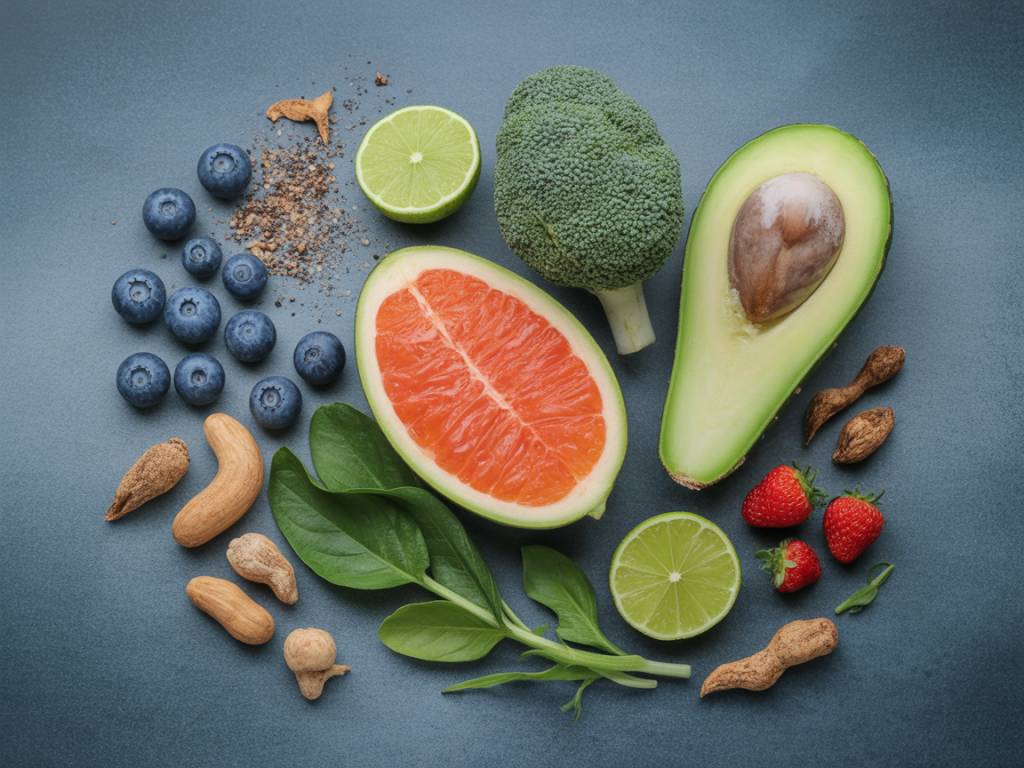Understanding Pollution and Its Impact on Health
In today’s increasingly urbanized world, exposure to pollution has become a daily reality for millions. From airborne toxins and heavy metals to pesticides and microplastics, environmental pollutants infiltrate our bodies through the air we breathe, the food we eat, and the water we drink. Over time, this toxic burden can impair organ function, disrupt hormonal balance, and trigger inflammation, thereby increasing the risk of chronic diseases.
The human body has sophisticated detoxification systems—primarily the liver, kidneys, lungs, and skin—designed to process and eliminate harmful substances. However, in the face of persistent environmental exposure, these systems can become overwhelmed. Fortunately, nutrition plays a critical role in supporting these processes. By consuming specific nutrient-dense « anti-pollution superfoods, » individuals can enhance their body’s natural detoxification pathways and fortify their defense against the harmful effects of pollution.
What Are Anti-Pollution Superfoods?
Anti-pollution superfoods are whole foods rich in antioxidants, phytonutrients, fiber, and essential vitamins and minerals that help neutralize toxins, support detoxification, and repair cellular damage caused by pollutants. These superfoods can promote liver function, improve digestion, and combat oxidative stress, offering a natural approach to detoxification.
While dietary supplements are available, the preferred approach is to incorporate these detoxifying superfoods into a balanced, plant-forward diet, offering synergistic benefits that isolated compounds cannot replicate.
Top Anti-Pollution Superfoods to Include in Your Diet
The following superfoods have been studied for their detoxifying properties and their ability to support the body’s resilience against environmental stressors.
- Broccoli and Cruciferous Vegetables: Rich in glucosinolates and sulforaphane, compounds that activate detoxification enzymes in the liver, these vegetables help neutralize carcinogens and support hormone metabolism.
- Turmeric: Containing the active compound curcumin, turmeric exhibits powerful anti-inflammatory and antioxidant effects. It can aid liver function and help the body manage oxidative stress induced by airborne pollutants.
- Garlic: Known for its organosulfur compounds, garlic enhances liver enzyme activity and aids in the elimination of heavy metals like lead and mercury.
- Green Tea: Abundant in polyphenols such as catechins, green tea combats free radicals, supports liver health, and may reduce oxidative damage caused by pollutants.
- Chlorella: This nutrient-dense green algae is particularly known for its ability to bind to heavy metals and support their removal from the body. Chlorella is also a good source of chlorophyll, which promotes detoxification.
- Beets: Rich in betalains and nitrates, beets support liver detoxification processes and aid blood purification. They are also known to improve vascular function, which is often compromised by pollution exposure.
- Lemons: Packed with vitamin C and antioxidants, lemons stimulate bile production and help the body digest fats while supporting cleansing of the liver and gallbladder.
- Spirulina: Another detoxifying algae, spirulina offers anti-inflammatory and antioxidant benefits and may assist in binding environmental toxins in the digestive tract.
- Flaxseeds: Rich in lignans and omega-3 fatty acids, flaxseeds support hormone metabolism and provide fiber, which aids in the elimination of toxins through the digestive tract.
- Berries: Blueberries, raspberries, and strawberries are high in antioxidants, vitamins, and fiber, making them effective in neutralizing free radicals and reducing cellular inflammation linked to pollution.
Nutrients That Support Detoxification
Certain nutrients are especially vital for healthy detoxification processes. Ensuring adequate intake of the following can help the body manage pollutant exposure more efficiently:
- Vitamin C: Supports the immune system and assists in the regeneration of glutathione, a key detoxifying antioxidant.
- Glutathione: Known as the “master antioxidant,” glutathione plays a central role in phase II liver detoxification. Foods like asparagus, spinach, and avocados promote its production.
- Selenium: This trace mineral, found in Brazil nuts and sunflower seeds, enhances glutathione activity and supports thyroid health—a gland often disrupted by toxins.
- Zinc: Essential for immune function and enzyme activity, zinc assists in neutralizing heavy metals and can be found in pumpkin seeds, legumes, and whole grains.
- Fiber: Soluble and insoluble fiber from whole grains, fruits, and vegetables binds toxins in the digestive tract, facilitating their elimination through stools.
Lifestyle and Dietary Practices That Enhance Detoxification
In addition to consuming targeted superfoods, several lifestyle and dietary practices can further support the body’s natural detox mechanisms:
- Stay Hydrated: Adequate water intake is essential for the kidneys to flush out toxins. Adding lemon or cucumber can further boost detoxifying effects.
- Limit Processed Foods: Ultra-processed foods often add to the body’s toxic burden, with preservatives, trans fats, and synthetic additives.
- Choose Organic When Possible: Reducing pesticide exposure is important when aiming to reduce the toxic load on the body.
- Support Gut Health: A healthy microbiome assists in metabolizing and excreting toxins. Prebiotic- and probiotic-rich foods like onions, garlic, and fermented vegetables can nurture gut bacteria.
- Move Regularly: Physical activity stimulates circulation, lymphatic drainage, and sweating—all important detoxification methods.
The Role of Nutrition in Modern Detoxification
Detoxifying the body in today’s environment requires more than occasional interventions or juice cleanses. It involves a comprehensive nutritional strategy that continuously supports the organs responsible for detoxification. Superfoods that combat pollution don’t merely remove toxins—they nourish cells, modulate inflammation, and sustain overall well-being.
With rising concerns about air quality, water contamination, and chemical exposure, the integration of anti-pollution superfoods into daily meals becomes both a preventative and therapeutic approach to modern health challenges.
By emphasizing plant-based, whole-food nutrition and minimizing processed intake, individuals not only enhance their ability to defend against environmental pollutants but also reduce their risk of developing lifestyle-related illnesses. When combined with mindful living and holistic health practices, diet becomes a powerful ally in navigating the complex interplay between urban life and human biology.

